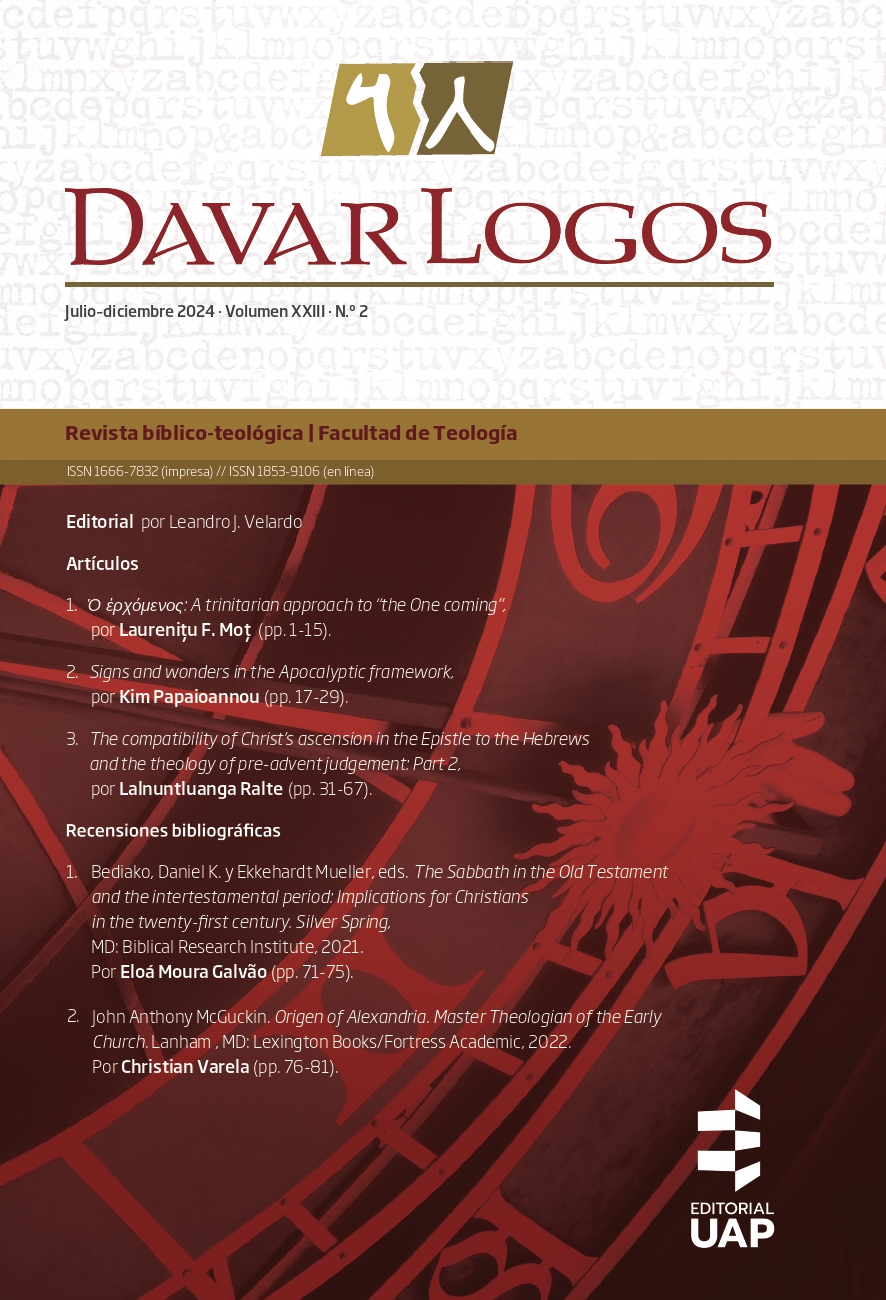Ὁ ἐρχόμενος: A trinitarian approach to “the One coming”
DOI:
https://doi.org/10.56487/dl.v23i2.1196Keywords:
Eschaton — Revelation — Ὁ ἐρχόμενος — TrinityAbstract
The main question of this research is what the meaning of the title ὁ ἐρχόμενος (Rev 1,4.8; 4,8) is, when applied to the One sitting on the throne (Rev 4,3). The pattern of an immovable God makes His portrayal as coming to earth seem unnatural. The pattern of an ubiquitous Spirit makes His coming to earth seem unnecessary. However, there are certain directions of interpretation on which account the study suggests that the eschaton is not only the second advent of Jesus, but also the coming of the God the Father and of the Spirit. The research is based on textual critical, exegetical, and inter-textual elements, as it argues that the formula “who is, who was, and who is to come” must be interpreted against the Greek picturing of various gods as continuously being in time (past, present, and future). The coming of God in Revelation is ultimately a conveyance of a portable throne, an image which falls in tune with the Jewish representation of the divine throne, as a movable object. Likewise, the Spirit is revealed to be the cause of the grand resurrection (Romans), as well as making eschatological promises in the first-person singular, some being related to the moment of the Parousia (Revelation). This has implications for the understanding of the eschaton as the conclusion of history brought about by the presence and direct involvement of the triune God.Downloads
Download data is not yet available.
Downloads
Published
2025-01-02
Issue
Section
Artículos
License
Copyright (c) 2025 DavarLogos

This work is licensed under a Creative Commons Attribution-NonCommercial-ShareAlike 4.0 International License.




